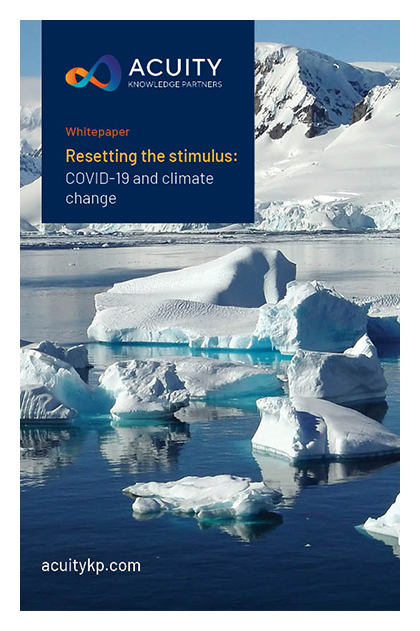
NEW Whitepaper
Resetting the stimulus: COVID-19 and climate change


Thank you for sharing your Comments
Your file will start downloading automatically
If it does not download within 1 minute,
Governments around the world rolled out unprecedented stimulus packages from March to May 2020. However, as business activity resumes, they appear to be realigning their priorities and are starting to commit part of these packages to tackle climate change. The attached note explains moves by certain governments (in the EU, Germany, South Korea and the UK) during the past two months, and why we think linking stimulus with climate change considerations is crucial.
Key Takeaways
- In the coming months, we expect governments to increase the proportion of climate investments, which would take the total share to beyond the current c3% of total stimulus (cUSD13tn)
- Electric vehicle manufacturers will be one of the key beneficiaries of this increase in green stimulus
- Economists agree that the direct and indirect socio-economic benefits of climate friendly investments far exceed those of carbon-intensive investments
- Stimulus packages are likely to strain governments’ future cash flow and could adversely
- Impact public climate financing over the coming years
- We see a strong case for stimulus funds to be directed towards climate-friendly investments so that the two systemic risks (the COVID-19 crisis and climate change) could be better managed

